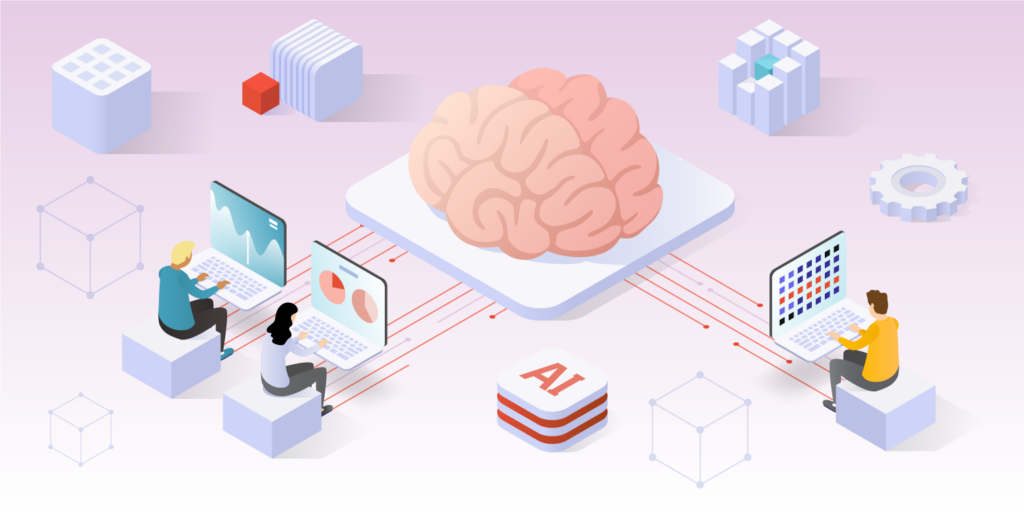by Curt Ecott
Introduction
The term “Artificial Intelligence” (AI) was first coined in 1956 by John McCarthy, one of the discipline’s founders. AI is a broad field of study that can be applied to many technologies and tasks. Foundationally, it uses complex computer algorithms to complete many types of human work.
AI-friendly capabilities include learning, problem-solving, perception, decision-making, and more. One example is the robot vacuum (ex. Roomba) that utilizes spatial abilities. Another increasingly common example is Large Language Models (LLM) that utilize cognitive abilities like information processing, problem-solving, and learning (ex. Generative Pre-trained Transformer (GPT) used by ChatGPT).
The power of Artificial Intelligence is shaping the future of civilization. Even in the tech field, not everyone is up to date on their basic knowledge of Artificial Intelligence. This short guide offers a big-picture view of the AI movement and how it is revolutionizing our way of doing business and living on this planet.
Business Opportunities
AI is quickly becoming a valuable tool that can bring significant advantages to how we live and conduct business. It can be applied to many diverse fields, such as:
Healthcare
AI technologies can help doctors diagnose diseases, create better electronic health records, assist in surgical procedures, and even develop new treatments.
Finance
AI algorithms can help financial institutions detect fraud, predict stock prices, and manage investments.
Transportation
AI systems can also improve the safety and efficiency of transportation systems, optimize logistics, and reduce traffic congestion.
Manufacturing
AI enhances Internet of Things (IoT) manufacturing by empowering the creation of tools that range from predictive maintenance to supply chain management and energy efficiency.
Education
AI tools can help teachers develop personalized student learning plans and create engaging educational content.
Entertainment
From sound and motion picture enhancements to video games and virtual assistants, AI is already at play in many places within the entertainment industry.
Ethical concerns
Ethical AI dilemmas run deep in all the above areas when it comes to issues such as:
Privacy
Is data secure for patients, employees, students, content owners, financial decision-makers–and more?
Accountability
Who is making the vital decisions, for example, in healthcare–the doctors or the diagnostic software?
Biases
How do the prejudices of humans find their way into the systems they create using AI, for example, with facial recognition software?
Employment
How will AI automation of products, processes, and services affect the number of humans on company payrolls?
Ownership
Will actors still own the rights to computer-generated images created by studios? And who owns the content created using ChatGPT? How will ownership of intellectual property rights be decided?
Conclusion
AI brings greater efficiency, more effective decision-making, and the ability to solve problems that have dogged the world for millennia. But we must also pay attention to the ethical dilemmas that present themselves along the way.
It then becomes a question for all businesses, no matter the sector, to examine and answer the ethical questions by staying in touch with developments and considering their implications.
At Flexion, we have the people, the philosophy, and the platforms to help businesses in all sectors tackle AI challenges and convert them to AI opportunities.
Whether it is aspects of your business that AI can help improve or with customers that need help understanding the AI landscape, we at Flexion can help bridge the gap.
To explore what AI can do for your business, please contact us to discuss how Flexion can help.
Stay tuned for the second blog post in our three-part AI series, which focuses on the challenges and advantages of using AI in the government tech-healthcare space.
Curt Ecott, a solutions architect/technical advisor at Flexion, has been deeply involved in the dynamic worlds of investment banking and government healthcare, leveraging technology to drive innovation. His expertise spans networking, full-stack development, DevSecOps, and architecture, with a focus on enhancing efficiency by advising teams and organizations for customer-centric technology solutions.




